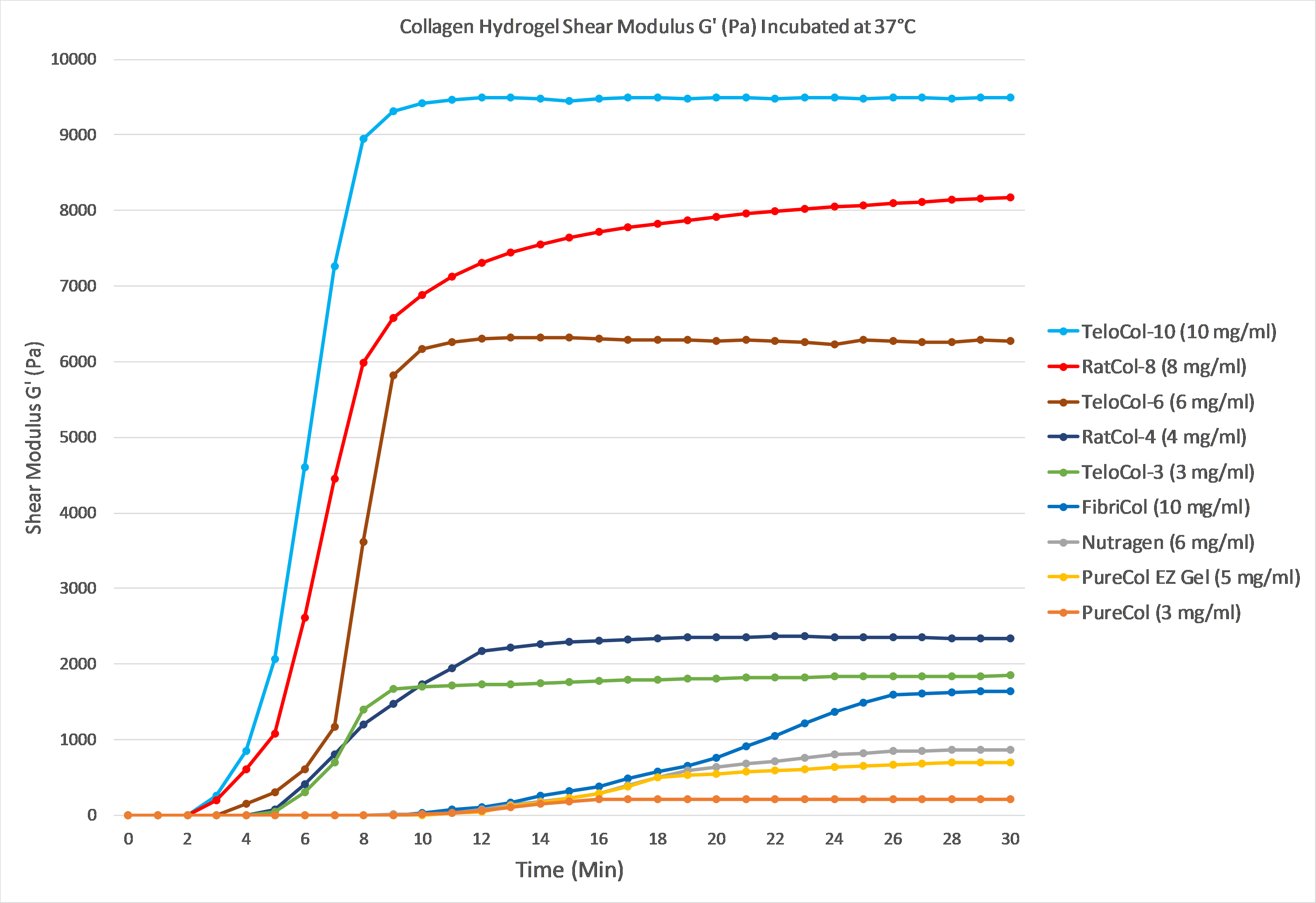Collagen Hydrogel Stiffness and Shear Modulus
04/07/20
Advanced BioMatrix has published two collagen hydrogel stiffness white papers. Mechanical stiffness is a critical parameter to consider when designing a cell culture system and tissue engineering. In the context of 2D or 3D cell culture, matrix stiffness can impact a wide variety of pathways including stem cell differentiation, cancer metastasis, and cardiac tissue function.
Paper #1: This paper utilizes a contactless rheometer to show gelation kinetics (how quickly collagen gels) and shear modulus (hydrogel strength). The paper focuses on all of our highly purified type I bovine collagen products that can form 3D hydrogels.
Download the Collagen Gelation Kinetics and Shear Modulus Whitepaper
Paper #2: This paper utilizes three different rheometers and testing methods to determine collagen hydrogel strength. It shows the highest values, but not gelation kinetics.
Download the Three Rheometer Collagen Hydrogel Stiffness Whitepaper
Our white papers highlight the differences in 3D hydrogel strength between collagen products of different concentrations, and extraction methods.
In the papers, hydrogel stiffness and shear modulus was measured using three methods: AFM, Dynamic Shear, and Contactless Measurement.
Results demonstrate two key points:
1. Higher concentration collagen forms firmer hydrogels.
2. Telocollagen forms firmer hydrogels than Atelocollagen.
The graph below demonstrates gelation kinetics of our collagen hydrogels. The collagen was neutralized according to respective protocols and placed in specialized containers within the 37°C chamber of the rheometer. Shear Modulus G' (Pa) is shown on the Y axis compared to Time (minutes) on the X axis. All of the below products are in inventory and are available for order.




